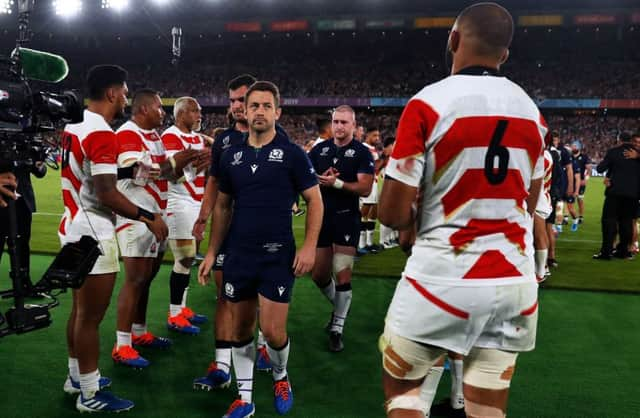Allan Massie: World Cup has been great success but it devalues Six Nations


I was no great enthusiast for the World Cup back in 1987. I saw, even feared, it would lead to professionalism and I liked and valued the old amateur game, even while recognising that the regulations were sometimes bent. Like Bill McLaren, I thought it good that players could combine devotion to rugby with a career and jobs outside the game. In his autobiography, he wrote nostalgically of the day when there was “a rich variety of teams made up of individuals with rounded lives, of hospital consultants, farmers, policemen and builders”. This is still of course how it is in the amateur game.
I also foresaw that the World Cup would eventually devalue the Five (now Six) Nations. It has clearly done so, even if for many of us the Six Nations remains the highlight of the sporting year. The tournament in Japan had only just reached the knock-out stage when there was already chatter about the need to use the next four years to prepare for the 2023 Cup. Since it’s being played in France, it’s perhaps not surprising that there was talk of the young French squad in Japan having been selected with a view to 2023.
Advertisement
Hide AdAdvertisement
Hide AdMeanwhile, there is discussion about when older players unlikely to feature in that World Cup should be discarded. When, for instance, should Ireland say good-bye and thank you to players like Johnny Sexton, Conor Murray, Keith Earls and C J Stander? Should Gregor Townsend now say “thank you and good-bye” to Greig Laidlaw, John Barclay and Tommy Seymour, even if all might still contribute much to the Six Nations in the spring and indeed in 2021?
That’s not all. It has scarcely been a secret that England’s coach Eddie Jones has made selections in at least some of the Six Nations matches in the last two seasons, in which he has experimented with different combinations, with an eye more fixed on the World Cup than on the immediate international. England’s excellent performance in Japan may be held to justify this strategy, whether or not they are world champions by the time you read this. But nobody can deny that using Six Nations matches as trials or super-trials devalues the tournament. It has seemed as if the attitude has been that it didn’t matter if Wales or Ireland won the Six Nations as long as England’s strategy aimed at winning the World Cup was on track.
Our position is a bit different. The SRU hierarchy and Townsend and his assistant coaches may deny it, and our hearts may be with them in that denial, but really we know that we are very unlikely to win the World Cup.
The structure of our professional game is simply inadequate and, so far as one can see, likely to remain so. On the other hand we do have a chance, even if the past 20 years suggest it is only a slim one, to win the Six Nations. In 1999 we won the last Five Nations playing some beautiful rugby. We beat Wales 33-20, Ireland 30-15, both at Murrayfield, France 36-22, and lost at Twickenham 21-24 in a tremendous match after England had gone 14-0 up in the first quarter. It was a game we might have won if we hadn’t missed one conversion and two kickable penalties.
In short, the Six Nations matters much more to us than the World Cup, no matter how interesting and exciting, is ever likely to do. So, while we may reasonably use Autumn internationals, of which there are of course none this season, with an eye to the future, that future should always have a short horizon, no more distant than the Six Nations in the spring.
We have a chance this season, first because our team is better than its record in Japan suggests, second because we play England and France at Murrayfield, and third because Ireland and Wales may both be entering a period of reconstruction and both will have a new coaching team which may take some time to settle.
Of course we would also have to beat Italy in Rome, something we have rarely found easy. If the luck is with us, allowing us to avoid disruption caused by injuries, we have a chance. There is, however, one lesson we can learn from Warren Gatland’s stewardship of Wales: the advantage of settling on your best team and sticking with it. I don’t have the figures but I would guess that in most recent Six Nations tournaments, Gatland has used fewer players than any of his rivals.